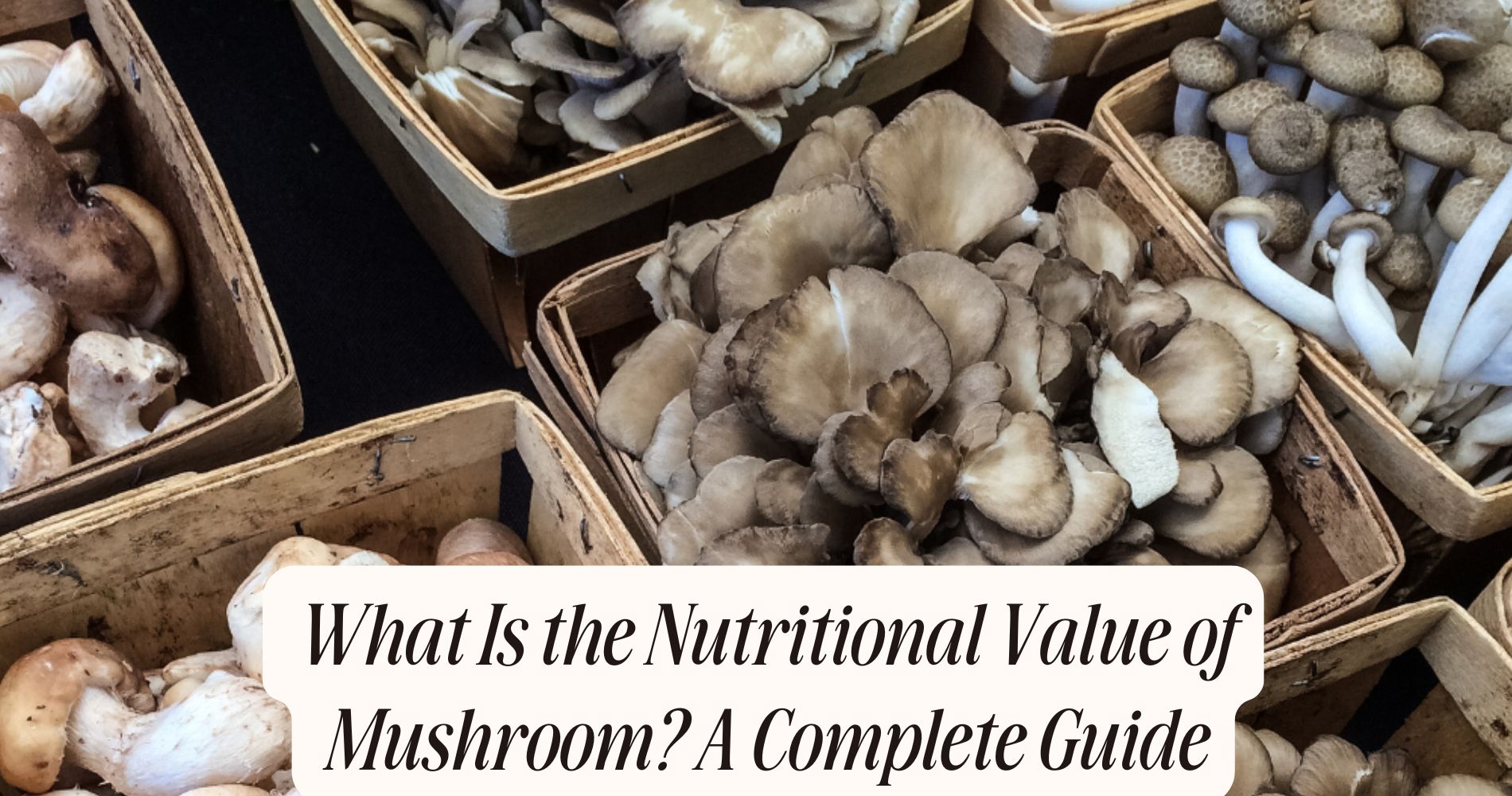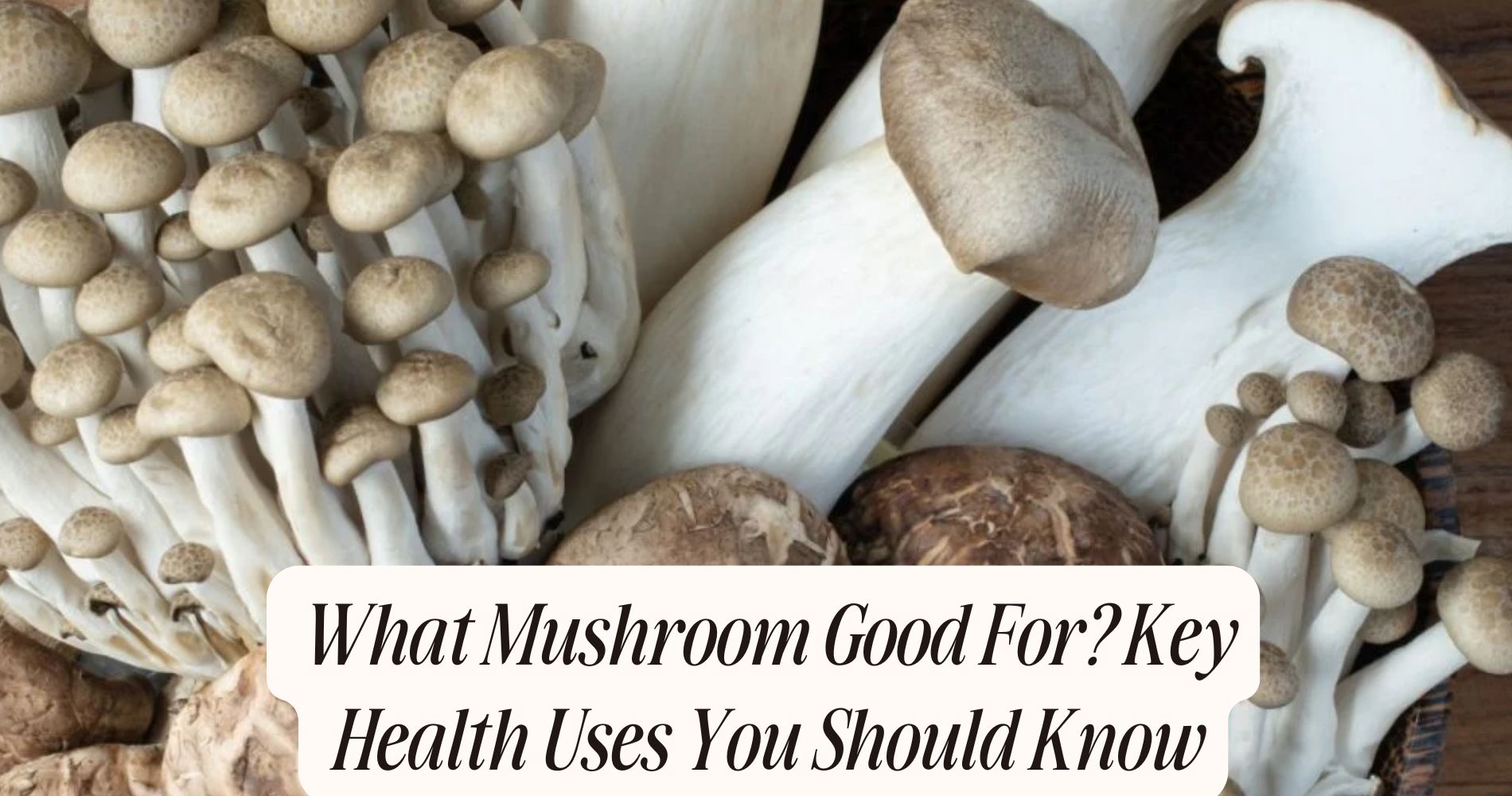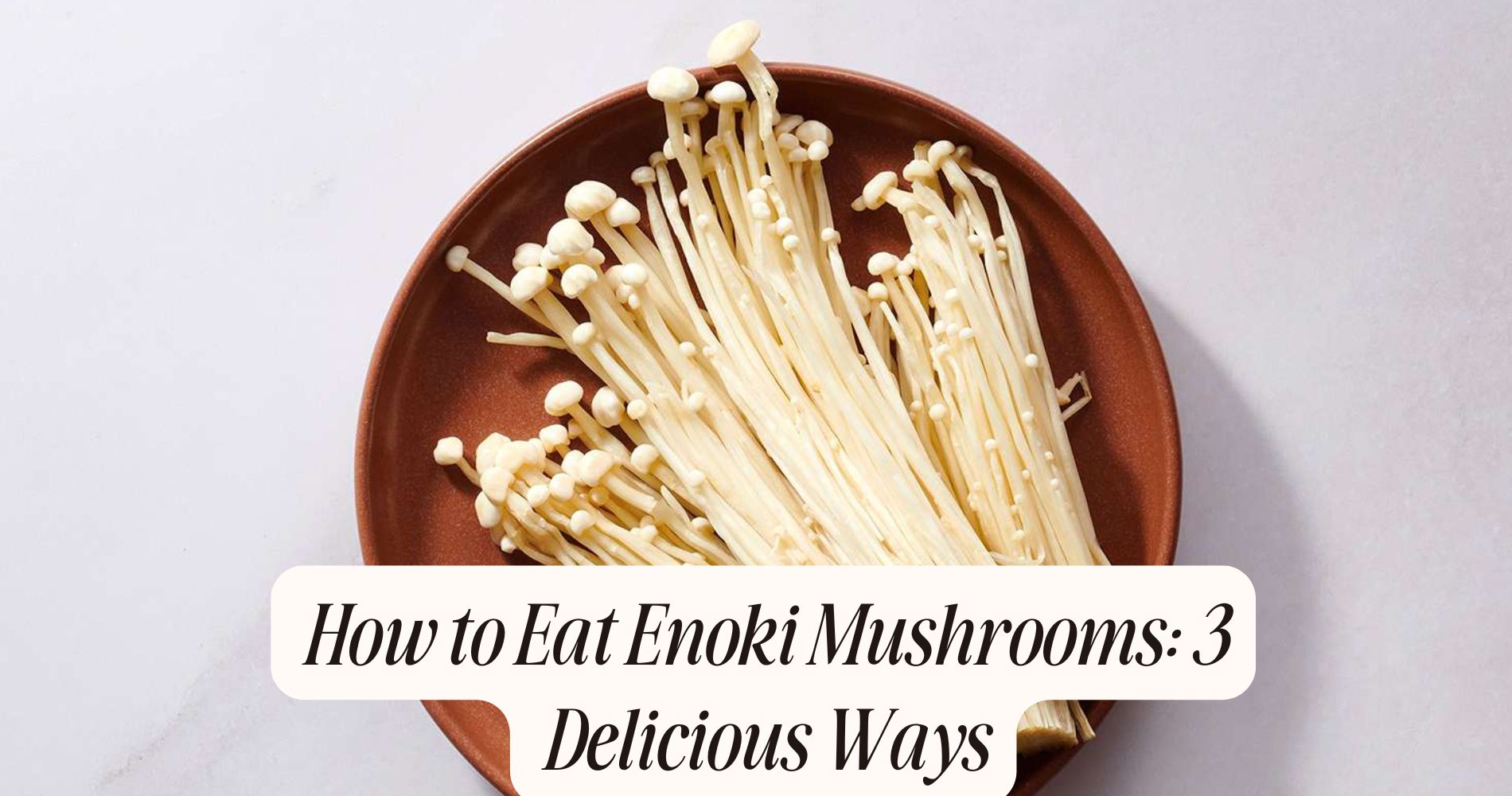
What Is the Nutritional Value of Mushroom? A Complete Guide
What is the nutritional value of mushroom? Mushrooms are a nutrient-dense food, low in calories while providing essential vitamins, minerals, and antioxidants. Varieties like shiitake offer B vitamins for energy and immune support, while portobello mushrooms are rich in potassium, promoting healthy blood pressure. They also have high fiber content, aiding in digestion and weight management. By incorporating mushrooms into your meals, you can enhance flavors without adding many calories. Discover more about their benefits and ways to enjoy them in your diet.
Understanding the Nutritional Profile of Mushrooms
Mushrooms are often overlooked in discussions about nutrition, yet they boast a remarkable profile that warrants attention. You’ll find a variety of mushroom varieties, each offering unique nutritional benefits.
For instance, shiitake mushrooms are rich in B vitamins, while portobello mushrooms provide essential minerals like potassium and phosphorus. Cooking methods also play a vital role in their nutritional value; sautéing or grilling can enhance flavor without greatly diminishing nutrients.

Furthermore, mushrooms are low in calories and contain antioxidants, making them an excellent addition to a balanced diet. By understanding the nutritional profile of different mushroom varieties and experimenting with various cooking methods, you can elevate your meals while reaping the benefits of these often-underappreciated fungi.
Health Benefits of Including Mushrooms in Your Diet
While many people may not realize it, incorporating mushrooms into your diet can greatly boost your overall health.
These versatile fungi are rich in antioxidants, which help combat oxidative stress, supporting your immune system. Regular consumption of mushrooms has been linked to enhanced immune support, making them a practical choice for maintaining your health.
Additionally, they're low in calories and high in fiber, which can aid in weight management by promoting satiety and reducing overall calorie intake.
Studies show that including mushrooms in meals can replace higher-calorie ingredients, contributing to healthier eating patterns.
Different Types of Mushrooms and Their Nutritional Value
When you explore the diverse types of mushrooms available, you'll find that each variety offers unique nutritional benefits that can enhance your diet.
For instance, shiitake varieties are rich in B vitamins, particularly B5, which supports energy metabolism and immune function. They also contain polysaccharides that can boost your immune system.
On the other hand, portobello benefits include being an excellent source of potassium, which helps regulate blood pressure. These mushrooms are also low in calories and high in fiber, promoting digestive health.
Additionally, they provide a good amount of selenium, an antioxidant that supports overall health.

How to Incorporate Mushrooms Into Your Meals
Incorporating mushrooms into your meals not only enhances flavor but also boosts nutritional value. You can start by adding sautéed mushrooms to omelets or frittatas for a hearty breakfast.
Consider mushroom recipes like creamy mushroom risotto or stuffed portobello caps for dinner, where they serve as a satisfying main dish. For lunch, toss sliced mushrooms into salads or use them as a topping on sandwiches to add a savory dimension.
Pair mushrooms with proteins like chicken or beef, as their umami flavor complements these meats beautifully. Their versatility means they fit seamlessly into various cuisines, from Italian to Asian, making meal pairings both exciting and healthy.
Embrace mushrooms, and elevate your culinary experience!
Tips for Selecting and Storing Fresh Mushrooms
Selecting and storing fresh mushrooms properly can greatly impact their flavor and nutritional quality. When choosing mushroom varieties, look for firm, unblemished caps and avoid those with dark spots or slimy textures, as these indicate spoilage.
Different varieties, like cremini and shiitake, may require specific storage techniques. To keep them fresh, place mushrooms in a paper bag rather than plastic, which traps moisture and promotes decay. Store them in the refrigerator, ideally in the vegetable drawer, where humidity levels are higher.

Avoid washing them until you’re ready to use them, as excess moisture can lead to quicker spoilage. Following these guidelines will guarantee you enjoy the fullest flavor and nutritional benefits from your fresh mushrooms.
Unlock the Power of Mushrooms with SUPER MUSHROOM GUMMIES
Ready to experience the benefits of mushrooms in a convenient and delicious form? Well Gummies' SUPER MUSHROOM GUMMIES are here to help! Packed with 10 types of functional mushrooms, these vegan gummies provide a natural boost for your brain, enhance focus, and support immune health. With a fresh wild berry flavor, they taste as delightful as your favorite candy—without the jitters or crash. Energize your body and stay sharp all day with SUPER MUSHROOM GUMMIES!
Frequently Asked Questions
Can Mushrooms Be a Good Source of Protein?
Yes, mushrooms can be a good source of protein, but their protein content is lower compared to animal sources. When comparing protein sources, consider including mushrooms for their other nutritional benefits and unique flavors in meals.
Are There Any Allergens Associated With Mushrooms?
Mushroom allergies can occur, though they're relatively rare. Common allergen types include proteins found in certain mushroom species. If you suspect an allergy, consult a healthcare professional for proper diagnosis and management strategies.
Do Mushrooms Contain Any Vitamins or Minerals?
Yes, mushrooms boast a rich vitamin content, including B vitamins like riboflavin and niacin. Their mineral profile includes essential nutrients like selenium, copper, and potassium, making them a valuable addition to a balanced diet.
How Do Cooking Methods Affect Mushroom Nutrition?
Cooking techniques greatly affect mushroom nutrition. For instance, sautéing retains more nutrients compared to boiling, which can cause nutrient loss. Choosing appropriate methods enhances nutrient retention, ensuring you maximize the health benefits mushrooms provide.
Are Dried Mushrooms Nutritionally Different From Fresh Ones?
Dried mushrooms differ nutritionally from fresh ones due to the drying process, which concentrates certain nutrients. While fresh benefits include higher moisture content, dried varieties pack a punch in flavor and shelf stability, enhancing your meals.
Conclusion
Incorporating mushrooms into your diet can greatly enhance your nutritional intake while providing numerous health benefits. With their rich profile of vitamins, minerals, and antioxidants, these versatile fungi can support your immune system, improve heart health, and even aid in weight management. By exploring various types of mushrooms and creatively incorporating them into your meals, you can enjoy their unique flavors and textures. Remember to select fresh varieties and store them properly to maximize their nutritional value.




